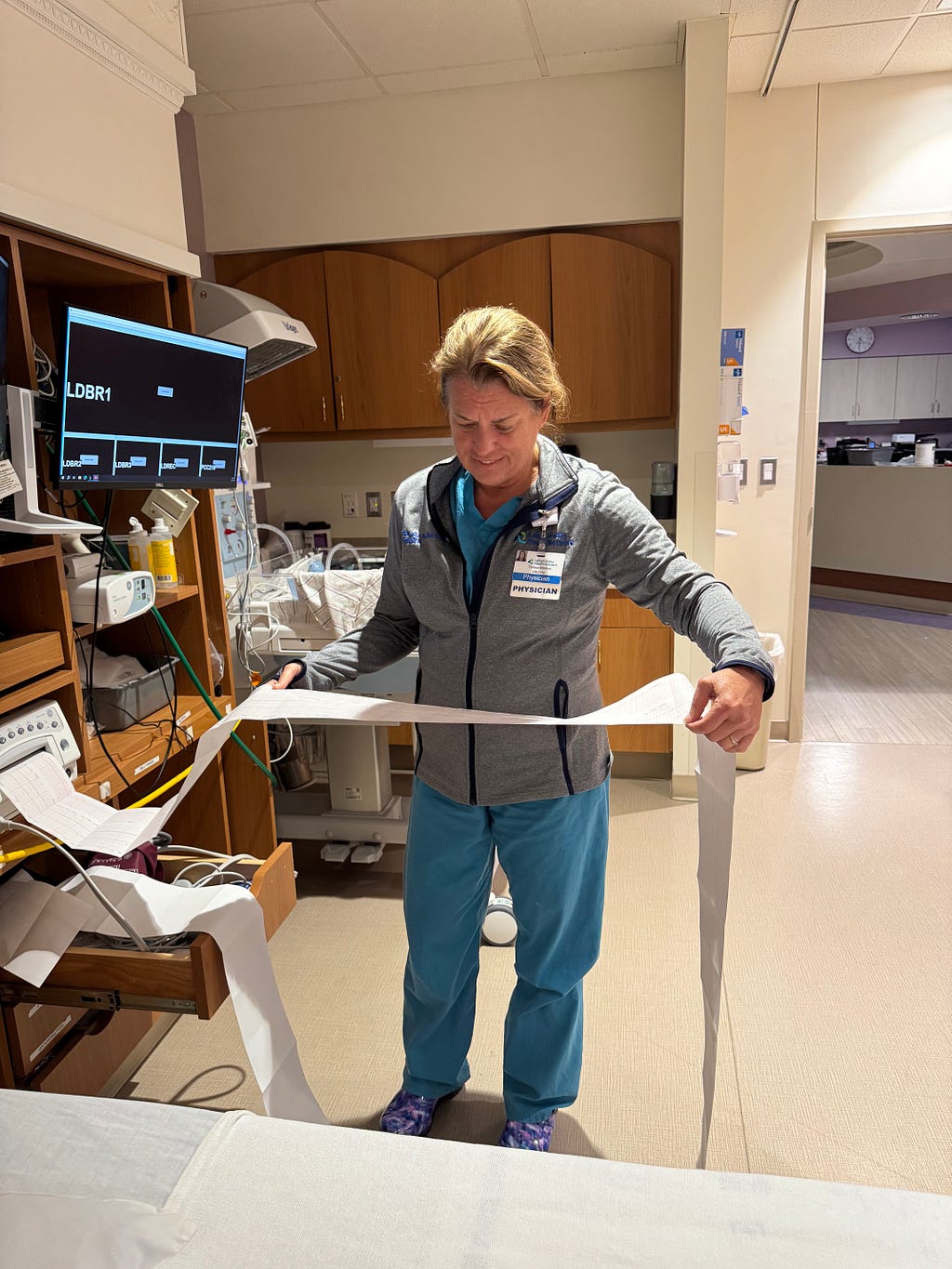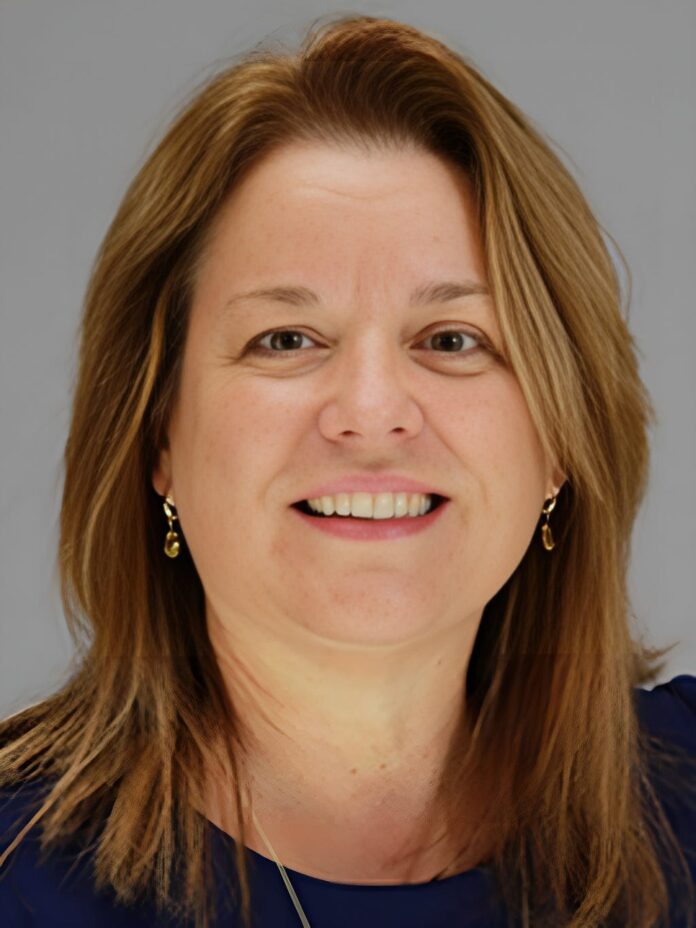An Interview With Lucinda Koza
Making mental health support and breastfeeding support services easily accessible for all patients, post-discharge.
The birthing process is one of the most significant moments in a person’s life, yet the experience can vary greatly depending on numerous factors. From the quality of care to the emotional and physical support given to the mother, there are many ways to enhance and improve this life-changing experience. As a part of this series, I had the pleasure of interviewing Teresa Marlino, MD, FACOG Site Director and OB/GYN hospitalist, Ob Hospitalist Group.
Dr. Teresa Marlino is a board-certified OB/GYN who received a B.S. in physical therapy from Temple University in Philadelphia, PA and medical degree from Jefferson Medical College in Philadelphia. She completed residency in obstetrics and gynecology at The Lankenau Hospital in Wynnewood, PA. She current serves as a Site Director for Ob Hospitalist Group.
Thank you so much for joining us in this interview series! Before we dive in, our readers would love to “get to know you” better. Can you tell us a bit about you and your backstory?
I am an OB/GYN hospitalist in clinical practice for 25 years, spending the first 20 years in private practice and the last 5 years in OB hospital medicine. I currently work 24-hour shifts at a remote hospital about 2 hours from my home that primarily serves an immigrant, Spanish speaking population who are receiving medical assistance. We deliver about 700 babies per year. While on call, I cover the triage, labor and delivery, postpartum units and emergency department for OB/GYN emergencies. I also perform GYN consults on the medical/surgical floor.
In the specific birthing experiences that you have been a part of or witness to, what were the key elements that seemed to have the most influence on the quality of the process, outcome, and aftermath of the birth? Can you please explain what you mean?
Our patient population is matriarchal — women are supported by their mothers, sisters, aunts, and friends. Many are fearful of the medical community and often have not had access to regular health care outside of pregnancy. As an OB hospitalist, I generally meet patients in the labor and delivery ward for the first time. It is crucial to establish good rapport with a patient and her family by listening carefully to her needs and expectations, providing explanations and clarifications on what is occurring, and using a shared decision-making model to dictate care.
Can you tell us about a birthing experience you were a part of as a professional that you actually wish had gone differently? Do you know exactly where it took a wrong turn? Do you think or know there is something someone, even you, could have done to improve this situation? Can you please explain what you mean?
I recently cared for a patient who had developed preeclampsia with severe features and was sent to the hospital for induction of labor at 37 weeks. Although she had a history of anxiety, she stopped taking her anxiety medication during her pregnancy thinking that it was best for her baby. The OB covering the shift before I arrived performed a vigorous cervical examination during which the patient cried out “stop.” The doctor was not sensitive to the situation, became impatient, and left the room. When I took over care 12 hours later, she had made little progress in her labor.
I sat down with her, listening to her concerns about what had happened so far. We discussed the medical situation and what we had as options for moving forward toward a vaginal birth. Using a shared decision-making model and discussing all options, we decided to place an epidural for pain control prior to any further examinations. During this conversation, the patient informed me that she had been sexually assaulted in the past and that was why examinations were so difficult for her. She had not previously disclosed this to any providers despite receiving regular prenatal care. Knowing this, we were able to establish open lines of communication, listening to one another, and setting realistic expectations together. She later went on to deliver a healthy baby girl.
Which of these do you feel most in contention with, if at all: lack of time, lack of resources, lack of information regarding a patient’s specific case, healthcare worker burnout, compassion fatigue, or something else entirely? Can you please explain what you mean?
The biggest issues are the lack of time in the office to properly educate patients about the birthing experience, patients with unrealistic expectations about what is about to occur (i.e. wants a cesarean section, but no IV placement), lack of appropriate support staff to provide one on one care in labor, sometimes feeling overwhelmed by the vast number of patients to care for, compassion fatigue, and bias towards patients — especially those with drug and alcohol problems or those patients who are not coping well with pain.
In your dream world, what would a perfect shift at work be like for you? If you had a shift with back-to-back births, what else would be in place structurally that would make you feel as if you are fulfilling your dream for birthing parents? Now, how can we take this out of your dream world and root it in reality?
I would love to see appropriate staffing during every shift. I would also like to see all patients participating in some form of childbirth education classes (instead of watching videos on social media) and more patients coming to triage or the labor and delivery unit with realistic expectations about their health, medical conditions, and options for care. Finally, wrap-around care for mother and baby, including prior to delivery, during hospital stay and in the postpartum period (adequate nutrition, mental health support, family and partner support, breastfeeding help, transportation support, etc.) would greatly improve patient outcomes.
Are there any innovative practices, technologies, or policies that you believe can significantly enhance the safety and comfort of the birthing process?
Having appropriate support personnel in labor or delivery, whether a labor nurse, certified nurse midwife, or doula, can significantly enhance the safety and comfort of the birthing process.

Can you please share “5 Things That We Can Do to Improve the Birthing Experience for Mothers”? If you can, kindly share a story or example for each.
1 . Childbirth education classes for all patients to set realistic expectations and increase knowledge of options during the birthing process.
2 . Open lines of communication between the patient, support person(s), and hospital staff.
This includes navigating and reducing language barriers — as 75% of our hospital population speaks Spanish, we utilize an interpreter to help clarify care. However, sometimes explanations are lost in translation because the translator does not understand medical language.
3 . Ensuring unbiased care for all patients.
4 . Strategies for hospital staff to better cope with compassion fatigue.
5 . Making mental health support and breastfeeding support services easily accessible for all patients, post-discharge.
How do you ensure that there is effective communication between healthcare teams and expectant mothers to reduce anxiety and build trust during labor and delivery?
As an OB hospitalist, I meet most of my patients for the first time in triage when they present with an issue. It is important for me to quickly establish rapport and trust with that patient.
To build trust, I like to sit down on the patient’s bed or nearby stool and level the playing field in our discussions. I introduce myself to the patient and ensure the support person(s) feel welcome and part of the team. I also ask open ended questions, requesting the patient’s point of view so that I can be sure she fully understands our discussion.
It’s important to me to speak in a calm, caring, and slow voice to let the patient know that I am listening and interested in what she has to say, without the feeling of being rushed.
Thank you so much for joining us. This was very inspirational.
About the Interviewer: After becoming her father’s sole caregiver at a young age, Lucinda Koza founded I-Ally, a community-based app that provides access to services and support for millennial family caregivers. Mrs. Koza has had essays published in Thought Catalog, Medium Women, Caregiving.com and Hackernoon.com. She was featured in ‘Founded by Women: Inspiration and Advice from over 100 Female Founders’ by Sydney Horton. A filmmaker, Mrs. Koza premiered short film ‘Laura Point’ at the 2015 Cannes Film Festival and recently co-directed ‘Caregivers: A Story About Them’ with Egyptian filmmaker Roshdy Ahmed. Her most notable achievement, however, has been becoming a mother to fraternal twins in 2023. Reach out to Lucinda via social media or directly by email: lucinda@i-ally.com.
Dr. Teresa Marlino On How to Improve the Birthing Experience was originally published in Authority Magazine on Medium, where people are continuing the conversation by highlighting and responding to this story.


